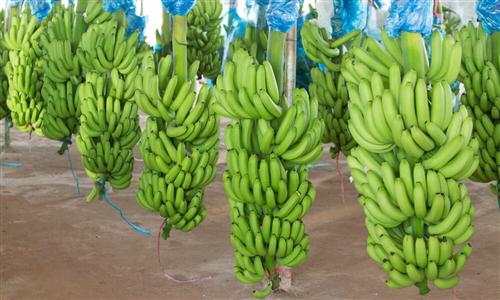Exports of agricultural, forestry and aquatic products down
Exports of agricultural, forestry and aquatic products down
Viet Nam recorded a total US$21.1 billion import-export value of agricultural, forestry and fishery products in the first four months of this year, according to a report of the Ministry of Agriculture and Rural Development (MARD). 
Exports hit $11.9 billion, down 4.9 per cent year-on-year, while imports were $9.17 billion, down 5.2 per cent.
Nguyen Van Giang, an official from the MARD’s Communication Office, said most export items decreased in turnover, except for coffee, cashews, vegetables, wood and wood products, cinnamon, rattan and bamboo.
Giang said China still occupied the largest market share of 23.4 per cent, with turnover of nearly $2.8 billion, down 17.7 per cent year-on-year. It was followed by the US with $2.78 billion, down 13.9 per cent, occupying 23.33 per cent of market share and the EU with $1.3 billion, down 1.9 per cent and accounting for 10.75 per cent of market share.
Meanwhile, exports to Japan hit nearly $1.1 billion, up 2.9 per cent, accounting for 9 per cent of market share, and exports to ASEAN countries were nearly $1.3 billion, up 7.1 per cent and making up 10.49 per cent of market share.
Nguyen Quoc Toan, head of the MARD's Department of Farm Product Processing and Market Development, said the ministry is working with the Ministry of Industry and Trade, agencies and businesses to monitor changes in prices in the market.
“We continuously update the supply and demand of domestic essential agricultural products, including rice, pork, vegetables, seafood, sugar and salt, to help balance the market, ensuring food security but still maintaining exports of agricultural products,” Toan said.
“We will improve the quality of market forecasts and inform localities and businesses to have appropriate production and business plans,” he added.
He said the ministry will also build plans and scenarios for exporting agricultural products to meet rising demand after China tackles the COVID-19 pandemic and focus on addressing technical barriers, negotiating market expansions to the EU countries, Eurasian Economic Union, the US and Brazil.

























